- Home
- slideshows
- miscellaneous
- Meet the 30 healthcare leaders under 40 who are using technology to shape the future of medicine
Meet the 30 healthcare leaders under 40 who are using technology to shape the future of medicine
Tanvi Abbhi, 30, and Dr. Nora Zetsche, 29, are making it easier for doctors and nurses to coordinate care for their patients.

Piraye Beim, 39, is bringing precision medicine to women's health.
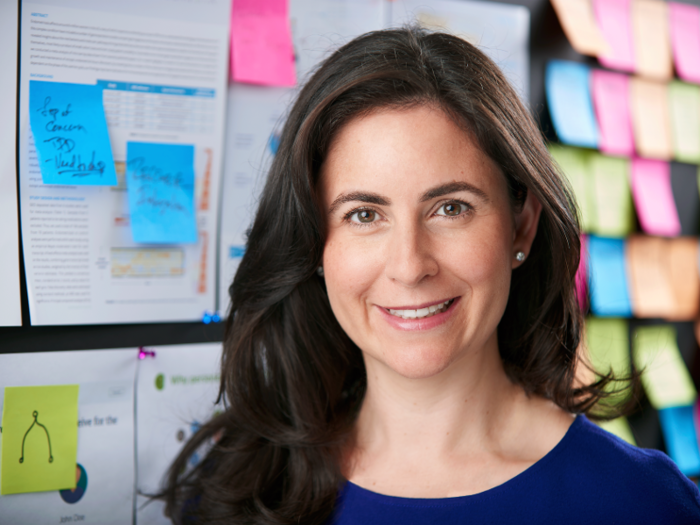
While getting her Ph.D., Beim was closely tracking a revolution in cancer treatment. Researchers were starting to investigate genetic mutations and their role in driving cancer's growth. Drugs began emerging to target those mutations. But something was missing.
"I didn't see that same playbook coming to reproduction and women's health," she said.
So in 2009 she set up Celmatix, a company meant to do exactly that. Almost a decade later, Beim still serves as CEO for the New York-based company, which makes a genetic test that screens for risk factors associated with female fertility. Celmatix also makes software that collects clinical data for reproductive medical centers and now has 90,000 patients on it. The company has raised $60 million in funding.
Dr. Robin Berzin, 37, is building a doctor's office that could be the future of medicine.

Berzin's interest in wellness dates back to her days training as a doctor at Columbia University and the Mount Sinai Health System in New York. After starting a company that provided a secure messaging platform for hospitals, Berzin began to think about how else the market for primary care, the basic level of healthcare you experience when you get an annual physical, could be disrupted.
"It seemed obvious to me to build a new system for primary care that not only re-operationalized medical care but also that incorporated tracking, and mental health," Berzin said. That’s why she started Parsley Health, a medical practice that has raised $10 million in funding.
Founded in 2016, Parsley Health has centers in New York, Los Angeles, and San Francisco and is the only medical practice located in WeWork spaces. Parsley is focused on functional medicine, a type of practice that tries to take a more comprehensive, holistic approach at treating the underlying cause of a particular disease. For a monthly fee of $150 you get not just primary-care visits but nutrition plans and supplement regimens along with more in-depth genetics and microbiome testing.
Manik Bhat, 27, wants to seamlessly connect patients with social-service providers to improve health outcomes.
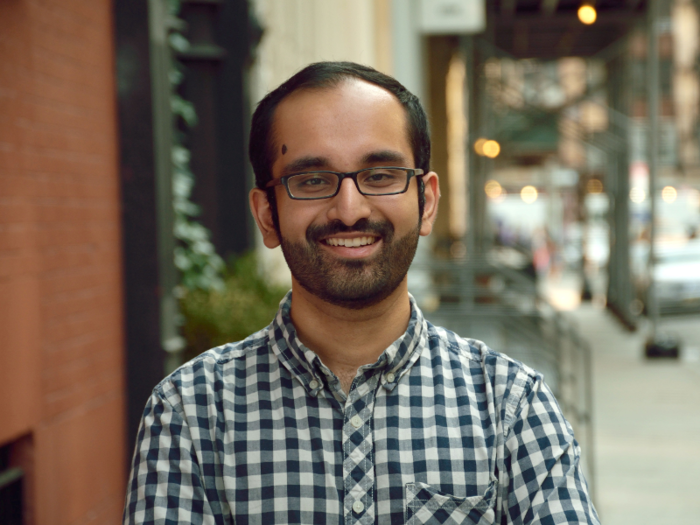
As a community-health worker in a poor area of Baltimore, Bhat saw firsthand how health outcomes were tied to social needs such as food, housing, childcare, employment, and transportation.
"Those were the needs that really impacted outcomes, really impacted cost, and those were they needs they really struggled with," Bhat said. That was the genesis of Healthify, a startup Bhat founded in 2013 and based in New York City.
Healthify helps large health systems and healthcare insurers identify needs in communities and then coordinates care directly with social-service programs. It also connects people to services and programs such as Meals on Wheels.
"Not only is it smarter from a healthcare perspective to focus on social needs, but we need to really invest in communities and help community members and community organizations be a part of the healthcare ecosystem," Bhat said. To date, the company has raised $9.5 million in funding.
Nish Bhat, 30, and Othman Laraki, 39, are bringing cancer- and heart-condition-screening genetic tests to the masses.
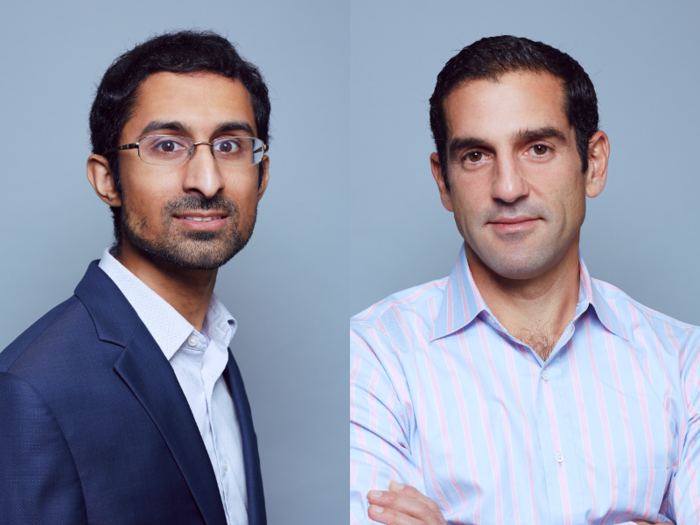
Laraki and Bhat are two of the cofounders behind Color, a genetics testing company that wants to help people get a better sense of their genetic risk for cancer and heart conditions. The company, based in Burlingame, California, has raised $112 million.
Color's tests range in price from $99 to $349, with the higher price offering a combination test designed to tell you about your risk for both hereditary heart conditions and cancer risk.
Bhat has been interested in biology since he was a child. "As a kid my favorite toys were not one but two different kinds of microscopes," he said. Now a founding engineer at Color, Bhat is working to bring technology tools like software and automation to healthcare and biology.
Laraki, Color's CEO, spent much of his career at Google and Twitter before starting Color. His background in tech has led him to think about making the experience of taking the tests easier, either through a lower price than other genetics tests or by working with employers to make it more accessible to their employees.
"Every bit of friction causes you to lose people," Laraki said.
Nick Bott, 35, is thinking about holistic health through cognitive and behavioral monitoring.
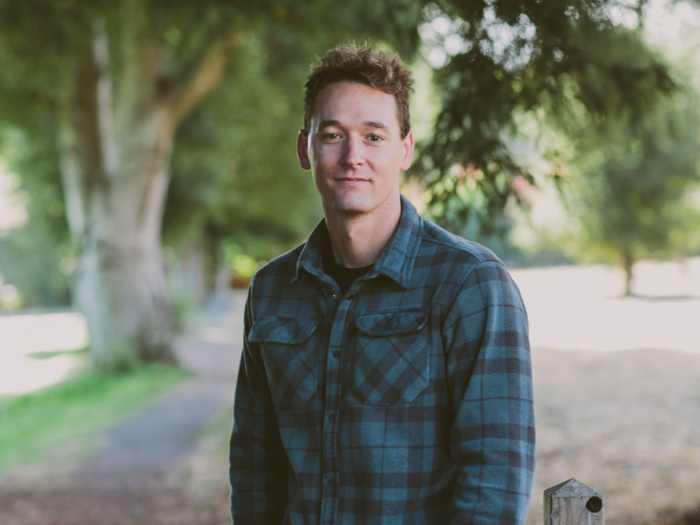
Bott is the chief science officer of Neurotrack, a Palo Alto, California-based company that uses science and technology to manage brain health. The company launched an online assessment in 2016 to help people understand the state of their memory health. It's intended to help users manage exercise, diet, sleep, time, and stress alongside its cognitive-training offerings to detect and manage memory loss.
A clinical neuropsychologist, Bott completed his postdoctoral degree at Stanford, where he studied population health. Now he's working with Neurotrack to measure and assess personal health at a scale where it can have widespread reach. He thinks up-to-date monitoring devices for brain behaviors will give a digital base for for tracking brain health and provide lifestyle-intervention advice if appropriate. It perhaps could even prevent cognitive decline, which can help lower the risk of Alzheimer's.
Marta Bralic, 27, is building partnerships meant to help cancer patients get the best available treatments faster.
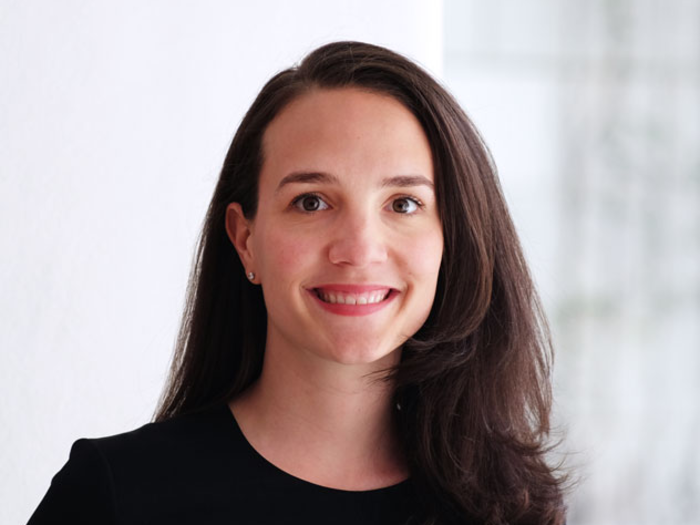
Bralic got into healthcare early in her career at the top management consulting firm McKinsey & Company. While there, she worked on a project seeking to improve healthcare payment in Arkansas, looking at different ways the state could pay for hip and knee replacements within its Medicare and Medicaid populations. It exposed her to an unfortunate reality about healthcare data. "It made it so clear to me how messy the data were, and how hard it was to aggregate the outcomes," she said.
After two years at McKinsey, she went to work for Flatiron Health, a New York-based cancer-technology company that was recently acquired by Roche. Now the vice president of business development, she works to get cancer patients access to treatments faster through Flatiron’s data collection, in part through collaborations with organizations like Foundation Medicine and the Food and Drug Administration.
Julia Cheek, 34, is trying to make lab testing go the way of Tylenol.
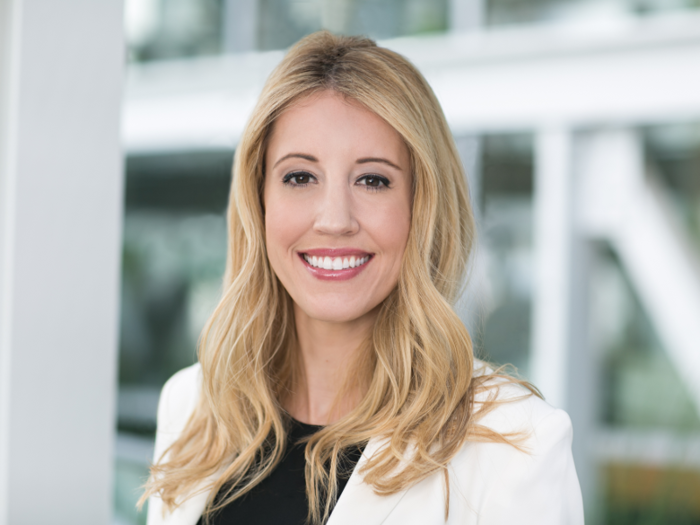
Cheek, a Harvard Business School graduate who was working in strategy at the money-transfer company MoneyGram, hadn't expected to start a healthcare company. "I couldn't have imagined starting a company in this space," she said.
But after paying thousands for lab testing while at MoneyGram, she started EverlyWell, an Austin, Texas-based company that sells at-home diagnostic tests for sexually transmitted diseases, fertility, and food sensitivity. The tests are run at traditional blood-testing labs. What's different about the process is the price tag.
EverlyWell targets the growing group of people who are on high-deductible plans that often leave them on the hook for covering thousands of dollars' worth of healthcare before their insurance kicks in. The three-year-old company has tests ranging in cost from $49 to $399 that patients can apply health savings accounts and flexible savings account dollars toward.
The idea is to have lab testing be as easy to access as acquiring an over-the-counter drug like Tylenol.
Alison Darcy, 40, is using artificial intelligence to create an on-the-go therapist.
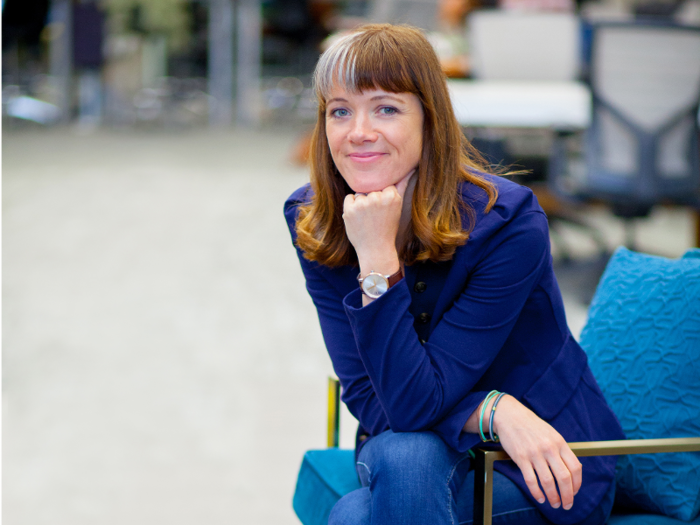
"We've learned that people are a lot lonelier than we realize," said Darcy, the CEO and founder of the Palo Alto-based Woebot. Her solution? A personalized, on-the-go virtual therapist that can be there for you when you're having a panic attack at 2 a.m.
Before starting Woebot, Darcy was a clinical research psychologist developing traditional treatments at Stanford. She also spent 18 months as a programmer in London. Darcy realized that a large number of people in the US would never get in touch with a clinician, and she sought to build a solution that was scalable and accessible.
Woebot is available on the Android and iOS operating systems and even in Facebook Messenger. It's a simple conversation-format chatbox that replies to worries and problems and suggests resources that may be relevant to the user. Business Insider's Erin Brodwin tried it out here. Despite its simple appearance, Woebot is backed by complex tech and algorithms. It remembers everything you say, can model your moods over time, and can help deliver insights that are useful and meaningful.
"Woebot is augmenting classic services by offering something truly different but complementary in the overall ecosystem of healthcare," Darcy said.
Brent Newhouse, 33; Mudit Garg, 34; and Ian Christopher, 30, are using artificial intelligence to replace the boring, logistical parts of the hospital so doctors and nurses can focus on caring for patients.
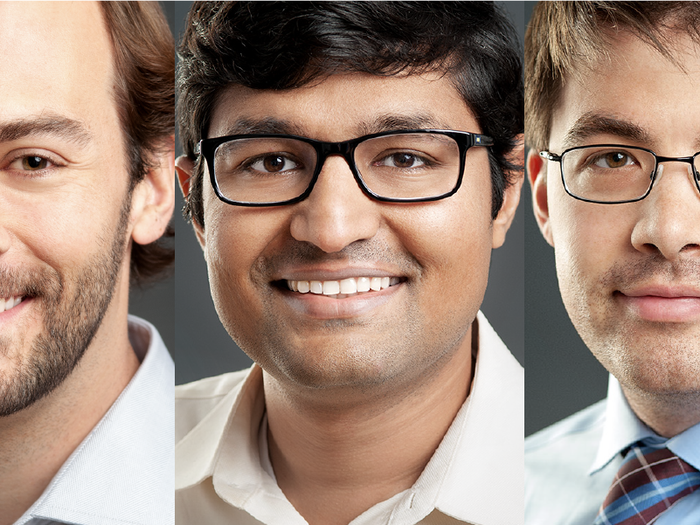
While working on a healthcare assignment at the consulting firm McKinsey, Garg and Newhouse saw firsthand how inefficient the management of hospitals could be.
Especially in the emergency department, they noticed, bottlenecks could form and leave frustrated patients with long wait times. The culprit: mainly boring, nonclinical work that ate up doctors' and nurses' time. So Garg and Newhouse, alongside Christopher, founded Qventus with the goal of using artificial intelligence to make the hospital more efficient.
The Mountain View, California-based Qventus' software plugs into hospitals' health-records systems, scanning what's happening and alerting nurses and doctors when they're about to get behind schedule while offering suggestions to help keep the hospital running more smoothly. Ideally, that should help shorten wait times. To date, Qventus has raised $43 million in funding.
Nick Greenfield, 29, and Lilla Cosgrove, 27, are infiltrating the oral-healthcare space by providing low-cost clear aligners to people who don't have to set foot into an orthodontist's office.
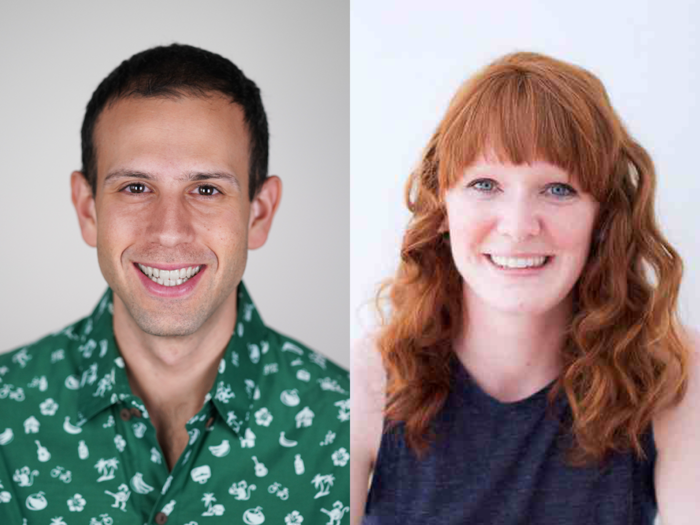
Greenfield didn't have braces growing up. As an adult he started learning about clear aligners that could straighten his teeth, but the price astounded him. So he created Candid with the goal of lowering costs and increasing access to oral health.
Cosgrove had been working in the Los Angeles and New York City startup scenes when a college friend introduced her to Greenfield. With a background in hospitality, Cosgrove hopped onboard as Candid's head of product, working with the business and engineering teams to create and update products.
For $88 a month, Candid will ship clear aligners and impression kits directly to customers with remote diagnosis and treatment suggestion by an orthodontist. The company also opened its first Candid Studio in New York City, where it creates 3D models of customers' teeth that can be used to make aligners. The company recently launched a mobile app that lets patients check in orthodontists to monitor their progress.
"Over 90% of our customers would never pay the average price for in-office clear aligners," Greenfield said. "We're definitely expanding the market for folks and helping them get access to something they couldn't get before."
Mina Hsiang, 37, is on a mission to use data to better inform the decisions we make about healthcare.
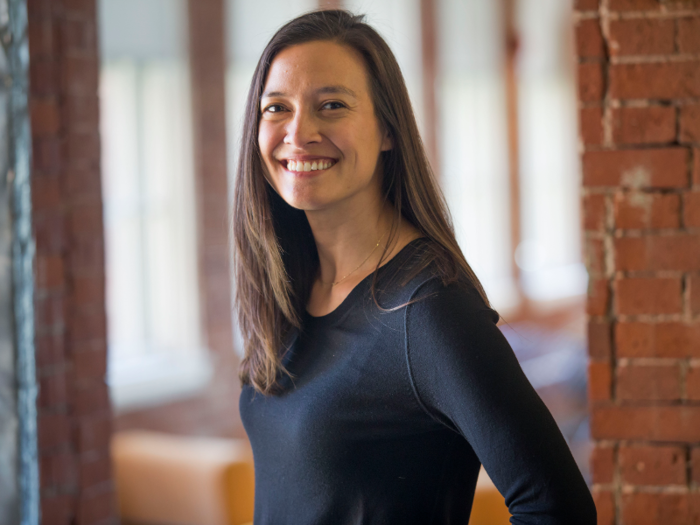
Hsiang has spent her whole career in healthcare technology. She studied electrical and biomedical engineering at the Massachusetts Institute of Technology, which led her to work at Massachusetts General Hospital, the Clinton Foundation, and at a startup developing medical technology for stroke patients.
Later, while working at the health-services company Optum in 2013, she got pulled into a tricky project: fixing Healthcare.gov, the website offering healthcare plans on the exchanges established by the Affordable Care Act. Its launch was a disaster, but by November 2013, Hsiang and the rest of the team had the site up and running again. After it was fixed, she went back to Optum until she got a call to work for the White House again, working with health data.
Hsiang now has another project in the works. As the head of product at Devoted Health, she's working on bringing better healthcare to those enrolled in Medicare. Devoted Health is a health-insurance startup offering Medicare Advantage plans that'll launch in 2019. Based in Waltham, Massachusetts, the company has raised $69 million in funding.
"I know that we can use a combination of data/evidence and our humanity to do a better job identifying and achieving our real objectives in healthcare," she said. "Everything I do is to help make that happen."
Andrea Ippolito, 34, is training the next generation of engineers to disrupt healthcare and other industries.
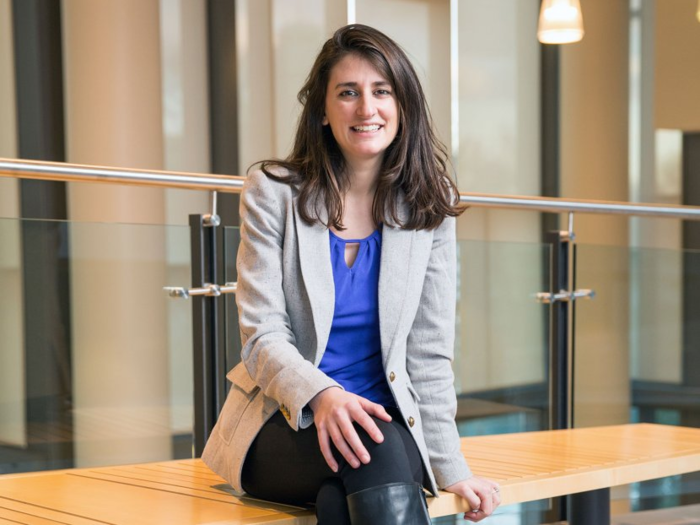
Ippolito has a soft spot for the intersection of engineering and healthcare. At the Massachusetts Institute of Technology, she led an event called Hacking Medicine, which inspired startups including the online pharmacy PillPack, which Amazon acquired in June.
She went on to work with the Department of Veterans Affairs. As the director of the Innovators Network, she helped the VA implement new technology across the agency's medical-records system. Because the VA has a government-funded healthcare system, it's a good place to adopt new technologies quickly across the entire system, Ippolito said.
Now the director of the engineering management program at Cornell University, she's teaching engineers how to tackle some of the challenges she's faced — whether in healthcare or other industries.
Dr. Veena Jones, 32, is using her experience as a doctor to help her hospital system better use technology to communicate with patients.
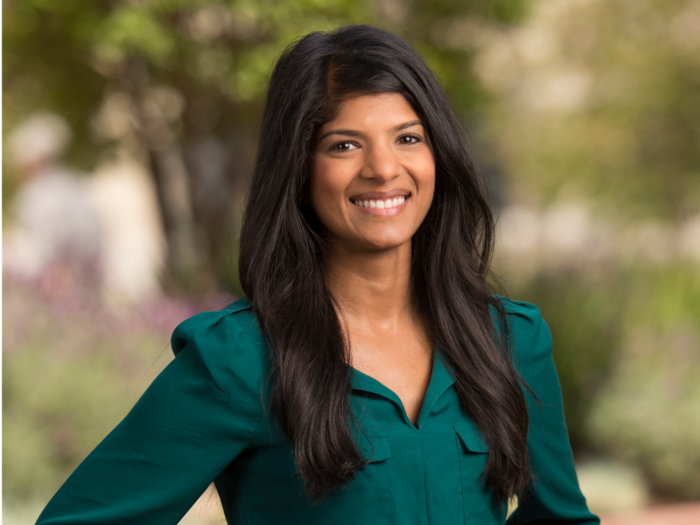
Jones has a lot on her plate. As a pediatric hospitalist at Sutter Health's Palo Alto Medical Foundation, she works with children and newborns who are hospitalized, a vulnerable time for both the kids and their families.
And as medical director of the digital patient experience at Sutter Health, a northern California health system, she's looking for better ways for patients and their families to communicate with their doctors. That includes finding ways to make the user experience easier for patients so they don't come away from using the hospital's computer system frustrated.
The two roles help inform each other. "I've had so much exposure to the opportunities that exist to make that better," Jones said.
Bharat Kilaru, 29, is creating a platform for communication between hospital staff members.
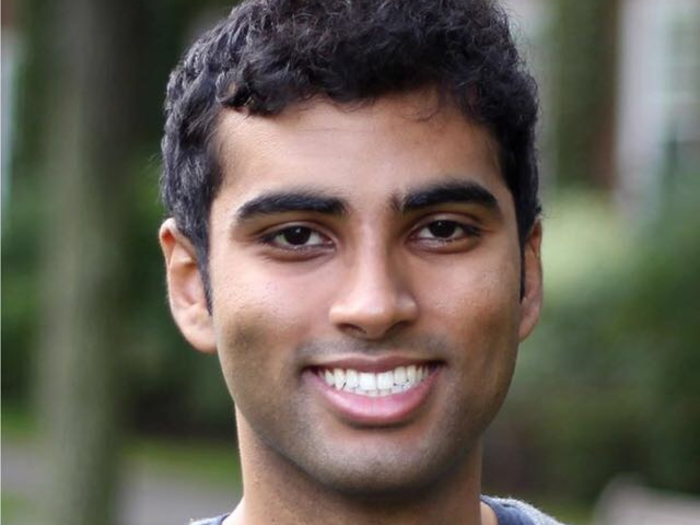
After graduating from the University of Chicago, Kilaru began working at a nonprofit free clinic called Shade Tree Clinic, where he worked with a team of physicians, nurses, and social workers. There he was exposed to how challenging technology could be in the healthcare space, and he set out to change that.
That's why he created Stitch, often dubbed the Slack of healthcare.
Stitch is a care-coordination platform for healthcare teams, allowing them to chat with their patients and manage relationships, tasks, and workflow throughout the day. More than 400 companies now use the San Francisco-based Stitch platform.
Stitch offers three products: Stitch Connect, which helps providers and care teams communicate and coordinate; Stitch Engage (just about to exit beta testing), designed to help healthcare teams communicate with their patients; and Stitch Manage for patient relationships.
Eric Kinariwala, 35, wants to take the hassle out of the pharmacy experience.
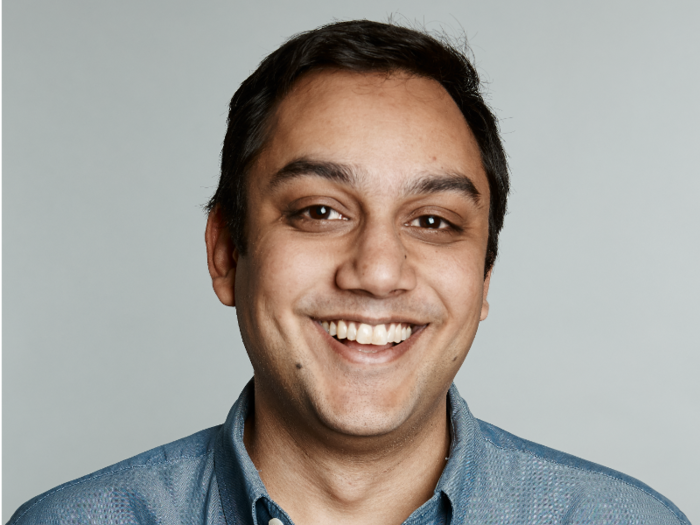
In January 2015, Kinariwala woke up with a terrible headache. The headache and the tedious trek to get medication turned into a brainstorm for an idea to ease the pain of the pharmacy experience.
Kinariwala was an investor for Perry Capital at the time, focusing on the health and technology sector. He had been thinking a lot about how businesses with physical shops were starting to go digital and began the journey to create a modernized, personable pharmacy brand, Capsule, in May 2015 with a friend named Sonia Patel.
The New York City-based company offers delivery services for prescriptions throughout the city and its five boroughs. Prescriptions are meant to be delivered within two hours, and through the app customers can chat or text with a pharmacist for advice about their medication.
April Koh, 26, is encouraging employers to sign on to a digital mental-health clinic for their employees.

Koh once saw her best friend cycle through seven antidepressants before finding the treatment that was appropriate for her. She viewed that as being one of multiple serious problems with mental-health care. So she went on to start Spring Health, a New York-based digital mental-health clinic that assesses the needs of patients, recommends treatment options using clinically backed data analysis, and connects them with professionals such as therapists and psychiatrists.
Koh wanted to apply data and tech to make mental-health care more successful. So she teamed up with her Spring Health cofounder Adam Chekroud, who was applying a machine-learning model to predict treatment outcomes at Yale University. They now sell Spring Health as a benefit solution to employers and companies.
It's hard to detect mental-health conditions, which lack the physical symptoms of some other diseases. "People suffer in silence for a long time because they don't get regularly screened," Koh said. Then there may be a long wait to access high-quality clinical care and then perhaps the kind of trial and error with treatments that Koh's friend went through. Spring Health is trying to tackle all three of these issues.
"I think there's kind of a great awakening happening right now around mental health," Koh said. "More and more of the younger generations are talking about these conditions a lot more openly, and employers are listening."
Dr. James Lu, 35, and Justin Kao, 34, want to make genetic information more portable and accessible for the everyday consumer.
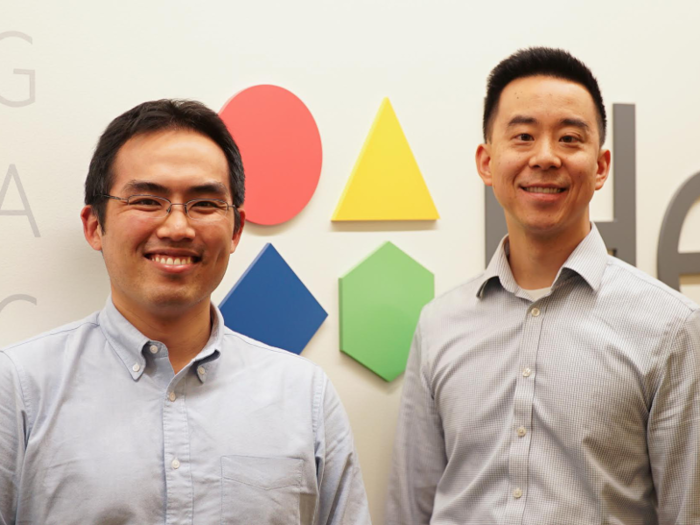
Kao and Lu grew up in California raised by immigrant parents. They met during their first week at Stanford University and knew from the get-go that they worked well together. After undergraduate, Kao ventured into business development in the healthcare space, while Lu went to medical school at the Baylor College of Medicine. The decision to start Helix, a DNA testing company, brought them together again.
"Your genome should be yours," Kao said. "It should be portable, it should be useful. It should be your choice in what you want to know." Helix was founded on that idea.
Often dubbed the "app store of genetics," Helix collects genetic samples, storing that data and working with partners that interpret that genetic data in a way that is insightful for the consumer, such as personalized health, nutrition, and ancestry. Through Helix, you send in one spit sample that can then be analyzed for different reports based on that person's interests over time. The San Carlos, California-based Helix in March raised a $200 million series B financing round.
Recently, Helix became involved in a project called Healthy Nevada in which it sequenced 40,000 people and combined that with electronic health records and environmental data in the first-of-their-kind studies about population health.
Dr. Alexi Nazem, 36, wants to alleviate the medical staffing shortage in the US healthcare system.

"I was predestined to go down this path," Nazem, the CEO and cofounder of Nomad Health, said. Nazem was born and raised in New York. His mother's family is full of doctors, and his father's is mostly in the venture-capital business. Excited by science and technology, he went to undergraduate and medical school at Yale University, then went to business school at Harvard University.
Nazem soon realized that there was an opportunity for technology to deliver improvement in the healthcare system, especially in areas that were more administrative. He saw the chance to take a real problem in medicine, solve it with technology, and turn it into a business. Nomad was the product. Founded in 2015, the New York City-based startup sought to alleviate the staffing shortage in hospitals by building a centralized marketplace for healthcare jobs.
The system reduces hiring costs and the time it takes for healthcare practitioners to apply for jobs. It recently announced plans to expand its hiring platform to the Midwest.
"What they want to do is apply their skill set in a way that helps people, so what we're doing is reducing the distance and the time between them and the bedside," he said.
Rachael Norman, 34, wants us to help with the taxing process of reimbursing out-of-network claims.
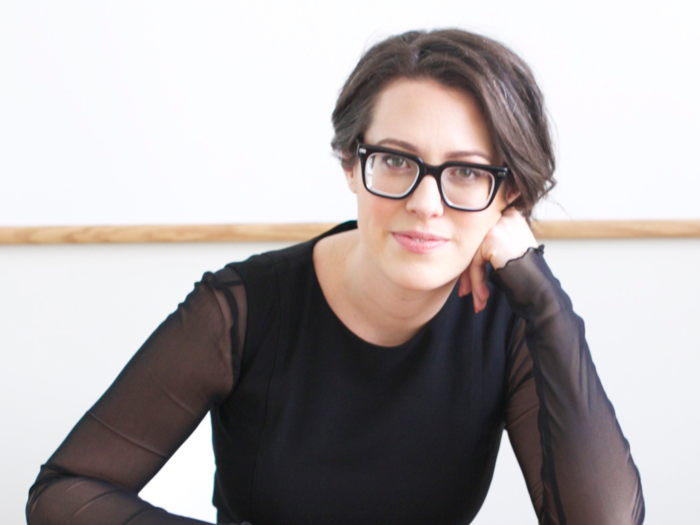
When Norman started out at Stanford as an undergraduate, she was set on becoming a doctor. But that quickly soured. "Every doctor that I worked with in different capacities said, 'I wouldn't choose this career again,'" she said.
Instead, she went to work in tech before encountering a problem getting reimbursed by her health insurance. As she looked around for a startup to help her out, she realized there wasn’t one out there, and thus she founded Better in 2016.
Say you go to a therapist who's out of your insurance network. Through the San Francisco Bay Area-based Better, you can upload the bill and Better will help you file the claim with your insurance, charging 10% of the amount you're reimbursed — the service is free if you don't get anything back. Norman said the startup had processed about $7 million worth of claims.
TJ Parker, 32, and Elliot Cohen, 35, want to help people take their medication by removing the friction from sorting and managing pills.
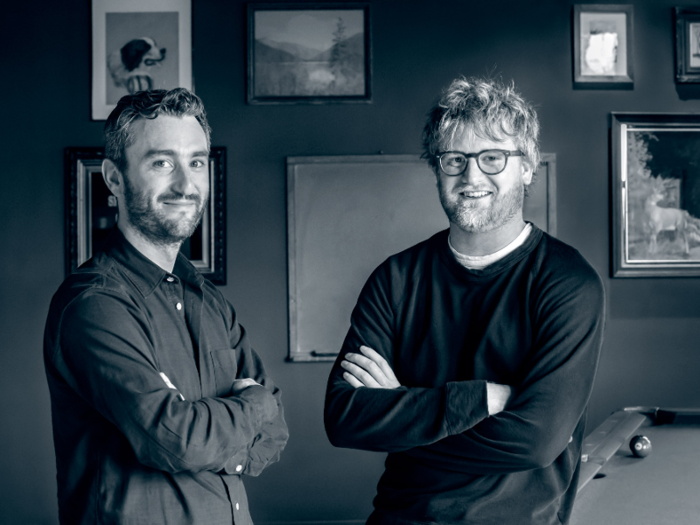
Parker had grown up in and around pharmacies. He attended pharmacy school in Boston, where he developed a deep interest in design and technology. It was at Massachusetts Institute of Technology's Hacking Medicine that he met Cohen.
At Hacking Medicine in late 2012, the pair pitched the idea for PillPack, a digital pharmacy, won the competition, and started the company shortly after.
PillPack, based in Boston, simplifies the process of managing medications for customers who take upward of five pills a day. It sorts, packages, labels, and delivers the medication to the customer once a month and, in conjunction, offers a mobile app that can help you keep track of your pills and send you reminders.
PillPack was acquired in late June by the e-commerce giant Amazon.
Michael Rea, 36, is helping people become better consumers at the pharmacy counter with more transparent prices.
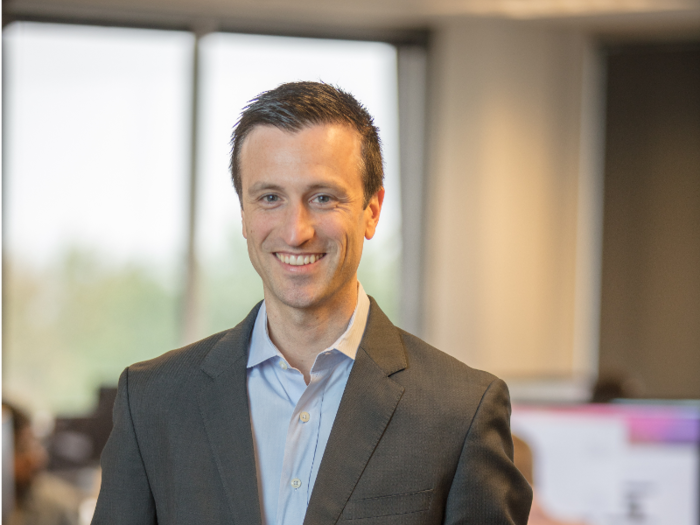
Rea had just started his career as a pharmacist when a woman asked him which two of her eight medications she should skip; the cost of all eight was too high. Rea, not wanting her to skip any, went home and spent hours researching the question for his patient, realizing along the way just how hard it was to be a consumer looking for lower-cost options to their prescriptions.
So he started Rx Savings Solutions, an Overland Park, Kansas-based company that builds software for employers and their employees, helping them understand what they might pay at the pharmacy counter and finding ways to lower their prescription costs through cheaper alternatives that may not have come up at the doctor's office. Today, about 2.5 million people have access to Rx Savings' software through their employers, a number Rea expects to get to 10 million by the end of 2018.
Jessica Richman is helping us better understand the microbes that live in and on each of us.
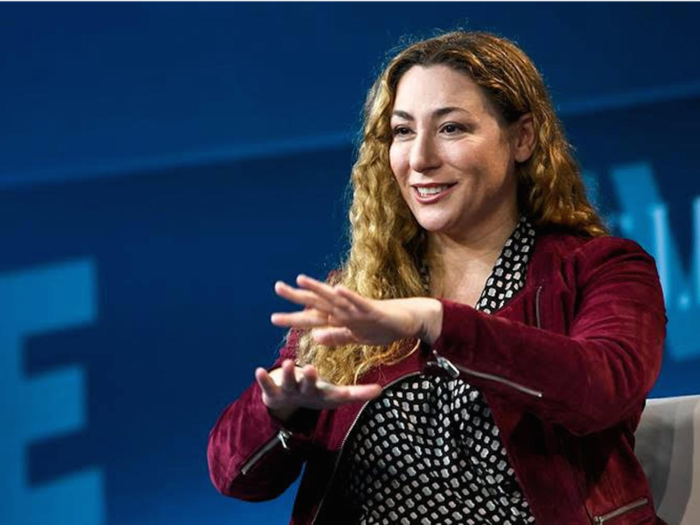
Richman's entrepreneurial career got its start in an unlikely place: Chile. She was studying in England at the time, and the offer of a visa and funding to start a company in the South American country was enticing. It was there that she met her cofounder, Zachary Apte, who was working on a doctorate through the University of California at San Francisco in biophysics. The two were fascinated with a new field of biology known as the microbiome.
So they started uBiome, a company that sells tests that sequence the bugs that live in us. With that information, the San Francisco-based uBiome can figure out what's going on in your microbiome, either for fun or for medical purposes. For example, the company's SmartJane test looks at the vaginal microbiome to test for sexually transmitted diseases as well as chronic vaginal infections.
Unlike your genome, the genetic information you're born with, the microbiome can change over time. It offers the possibility that by changing up diet or other factors, you may be able to get your microbes back to a healthy state.
Rob Schutz, 34; Saman Rahmanian, 36; and Zachariah Reitano, 27, are helping men get more involved with their health by using sexual dysfunction as a "check-engine light."
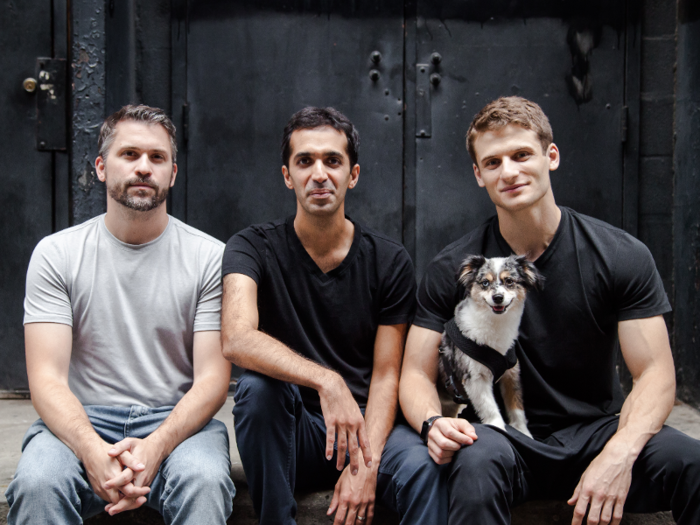
For Reitano, the CEO of the New York-based men's health startup Roman, the focus of his company is very personal. Knowing a patient has erectile dysfunction can help doctors better check for other health concerns such as diabetes or heart disease. It's something Reitano refers to as a "check-engine light." In Reitano's case, erectile dysfunction signaled a heart condition.
It's personal too for Reitano's two cofounders, Schutz and Rahmanian, who watched their wives go though doctor's visits upon doctor's visits throughout pregnancy. When it came to their own health, it wasn't something they spent much time thinking about.
The three met while Reitano and Rahmanian were working at Prehype, a venture development firm that works with corporations to create startups. Schutz had been working for Bark & Co., the company behind Barkbox, which happened to be in the same building. The three put their heads together and realized that their experiences with men's healthcare could be turned into a startup.
Roman, which launched in November with $3 million in funding, has both a telemedicine practice and a pharmacy to distribute medications specifically for erectile dysfunction, such as Viagra and Cialis. The company hopes to expand beyond erectile dysfunction to treating other health conditions the "check-engine light" alerts Roman users to.
"One thing we're excited to do is apply best practices from e-commerce into healthcare," Schutz said.
Kimmy Scotti, 33, wants to change healthcare by focusing on cost rather than on convenience.

Scotti has been building companies since she was 15, when she launched a jewelry line. Now a partner at 8VC, a venture firm that manages $1.5 billion, she has her eye on health-tech startups, investing in companies like uBiome, the pharmacy startup Blink Health, the home-care startup Honor, and the dental-care startup Opencare. She also cofounded Monthly Gift with her sister to provide feminine-care products to women for $10 a month.
The thread that connects all those investments, Scotti said, is a focus on cost over convenience. "A lot of what we see in healthcare technology today is how to bring a doctor to someone's house," she said. "But the major problem," she added, "is the cost."
Manish Shah, 35, wants to provide support to patients through surgery and recovery.
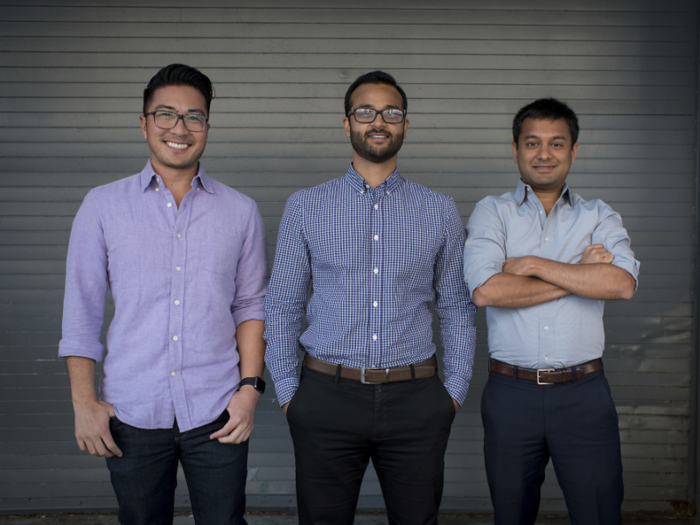
PeerWell isn't Shah's first rodeo. A computer-science engineer from Berkeley, Shah knew early on that he didn't want to work for a big company. He had his first run at startups with a company called LiveRamp, which did data onboarding. He left that to pursue other interests, and during a time of stopping and starting companies he developed an interest in health and healthcare.
He started the San Francisco-based PeerWell, a program to assist people with muscoskeletal disorders, such as movement problems or carpal tunnel syndrome, before they underwent surgery. PeerWell goes on to help patients through their recovery. Shah believes the tool not only allows patients to be more active participants with their health but also lifts some of the burden off the healthcare system. By addressing topics like anxiety and diet, PeerWell manages most of the nonmedical concerns that might arise and allow patients to have more substantive conversations with their surgeons.
Lalit Venkatesan, 35, is leading a research team to investigate alternative tech-based treatments for chronic pain and movement disorders.
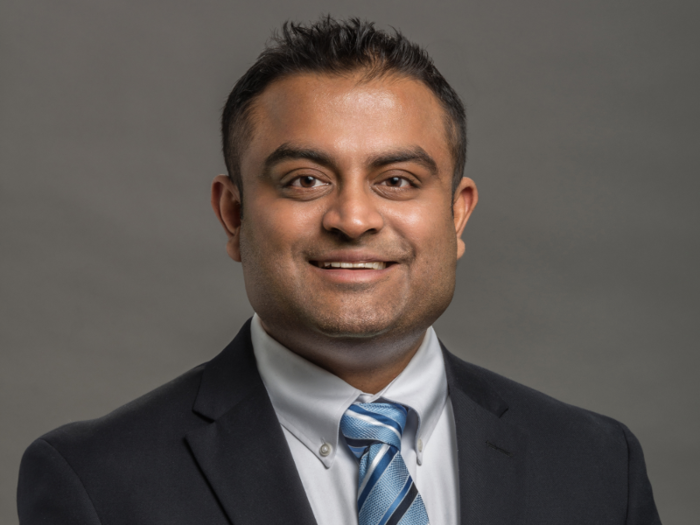
Venkatesan is a biomedical engineer and a director of applied research at Abbott Laboratories, based in Chicago. The team he leads is focused on neuromodulation, a new technology used to treat chronic pain and movement disorders. Venkatesan was born in India and completed his graduate degrees in computer engineering and neuroscience at the University of Kansas. This prepared him to lead his team at Abbott, which focuses on clinical studies as well as computational model studies for mostly neurological conditions.
Both the neuromodulation device and one of Abbott's first proprietary virtual-reality technologies could provide pain relief designed to help patients reduce opioid use.
Both systems run with Apple iOS technology, means they're compatible with iPhones.
"The opioid epidemic has increased awareness in this technology, and it has influenced the way this technology is being used," Venkatesan said.
Grant Verstandig, 29, leads the digital strategy for America's largest health insurer.
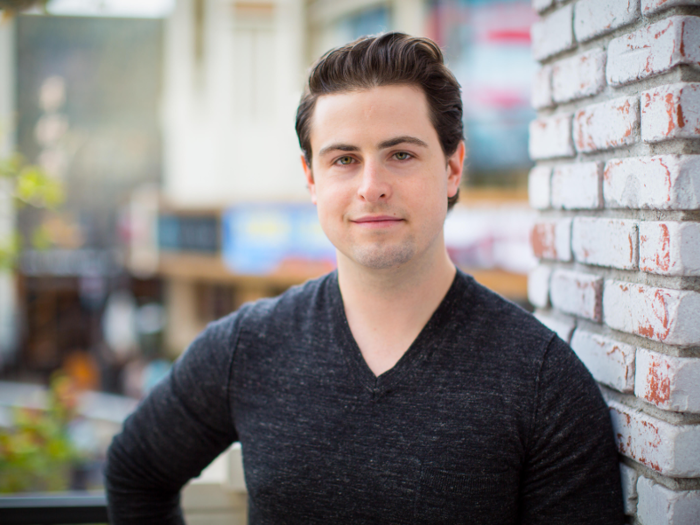
Verstandig's lacrosse career came to an early end in his first year of college when he blew out a knee. His experience with the healthcare system after that injury led him to drop out of college at 21 and start Rally Health.
Based in Washington, DC, Rally makes online tools meant to help people make choices about where to get healthcare based on what is in-network or nearby, and it also provides incentives for healthier living. In 2014, UnitedHealth Group acquired a majority stake in Rally, and Verstandig in 2017 stepped into the role of chief digital officer at UnitedHealth. He still serves as CEO of Rally.
Verstandig is now helping to build the digital tools UnitedHealth can use with its members.
"We're now just beginning to unleash the data," Verstandig said. Between the reach UnitedHealth has and the consumer experience he's built at Rally, Verstandig is optimistic about what the company can accomplish.
"I think you can have an Amazon-like effect for consumers," he said.
Shirley Wu, 35, is making genetic data relevant to the masses.
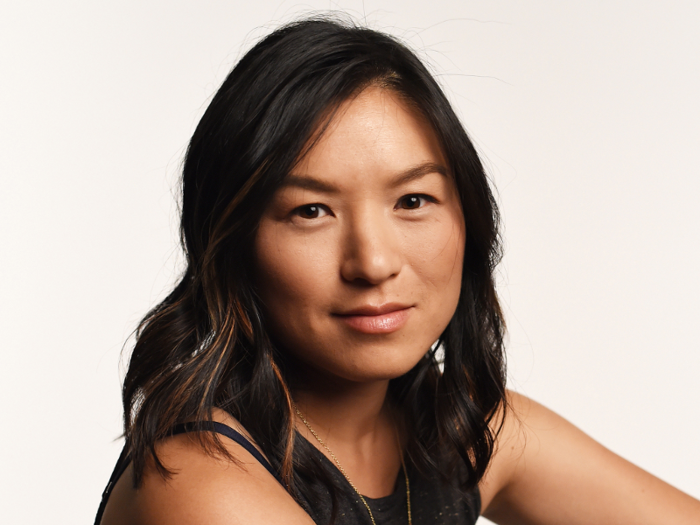
As a college student, Wu wasn't exactly sure what she wanted to do after graduation. But while in graduate school at Stanford University, she crossed paths with Serge Saxonov and Brian Naughton, two of the founding scientists at 23andMe, a company now known for its consumer genetics tests. When Wu heard about their goal of bringing genetic data to people, it resonated with her.
After graduating in 2009, she joined the Mountain View-based 23andMe, first focused on curating research and information that had already been published and blogging about it for 23andMe's website. Now almost a decade later, she is the director of product science and is responsible for the health reports 23andMe provides to its users.
"I think a central theme of why I've been at 23andMe is the opportunity to bring science to the masses and make it relevant," Wu said.
Sona Shah, 28, and Teresa Cauvel, 25, envision a future with fewer dead babies.
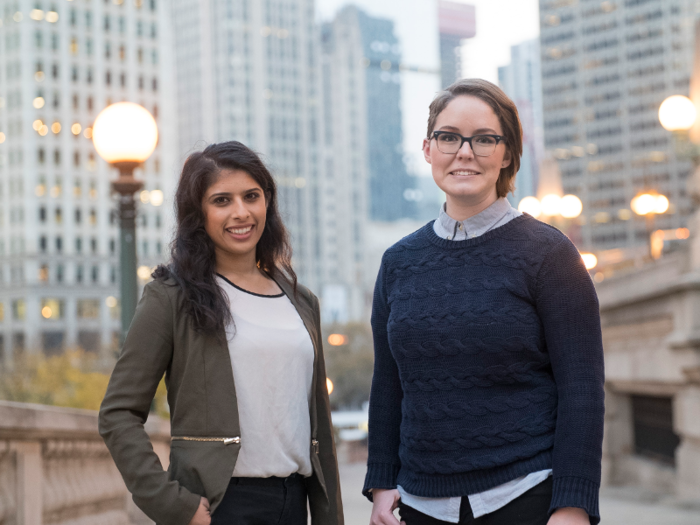
Shah and Cauvel founded Neopenda in 2015, hoping to use their engineering skills to create products with a social impact.
The two met during a graduate engineering program at Columbia University, for which they traveled to Uganda to visit local hospitals. There they saw a lot of technology that was not being appropriately used or maintained. They also spent time in newborn wards, where a shortage of nurses to care for that many critically ill newborns caused some to die from preventable causes.
The experience inspired Neopenda's first product, which is still in development. It's a small, wearable device meant to monitor and measure four vital signs at once: heart rate, respiratory rate, blood oxygen saturation, and temperature. These vitals are relayed to a tablet where nurses can have a centralized screen to monitor real-time conditions of multiple babies and can be alerted when a baby's vital signs are abnormal.
"I'm excited to be implementing a connected wireless technology in a place where it has never been used that way before," Cauvel said. "There's lots of potential to see these technologies in new ways." So far, the Chicago-based Neopenda has raised $600,000 in funding.
Popular Right Now
Popular Keywords
Advertisement